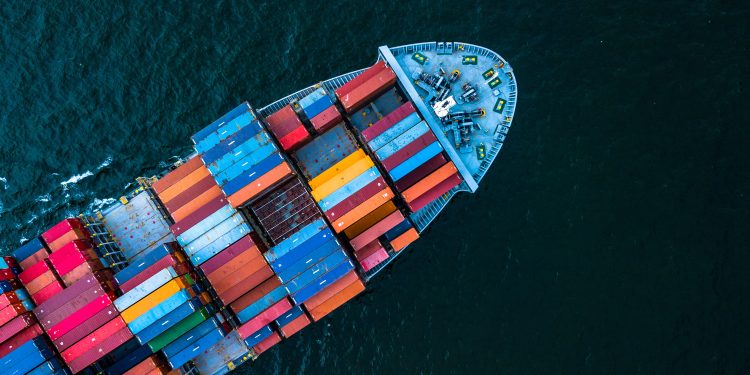Cargo Owners for Zero Emissions Vessels (coZEV) announced the release of a ‘Roadmap to 2040’, which outlines action areas cargo owners can start taking in 2023 to enable full decarbonization of their ocean freight by 2040, the ambition established by the 19 current signatories to coZEV’s 2040 Ambition Statement.
The ‘Roadmap to 2040’ includes the creation of a new maritime freight buyers alliance, a cargo owner policy coalition, and a green corridor advisory board. Participation in these new action areas is open to all cargo owners interested in transitioning their ocean freight to zero emission shipping in the coming years.
The Aspen Institute is inspired and excited by the steps being taken by companies to transition from ambition to action in the maritime decarbonization space
said Dan Porterfield, President and CEO of the Aspen Institute.
Among actions in the ‘Roadmap’, coZEV will work with cargo owner companies to establish the Zero Emission Maritime Buyers Alliance (ZEMBA) to accelerate commercial deployment of zero emission shipping, enable economies of scale, and maximize cargo owners’ collaborative emissions reduction potential beyond what any one freight buyer could accomplish alone. ZEMBA will accomplish these goals by stimulating investment in zero emission solutions.
Demand for zero emission shipping is essential for de-risking investment in zero emission maritime fuels and technologies across the value chain
added said Ingrid Irigoyen, Director of the Aspen Institute Shipping Decarbonization Initiative and facilitator of coZEV.
With facilitation support from the Aspen Institute, coZEV plans to welcome an inaugural group of freight buyers to join ZEMBA in 2023. Together, those members will then announce their total demand for zero emission ocean shipping with an associated goal for avoided greenhouse gas emissions.
A competition law compliant process is under design to attract zero emission cargo services for ZEMBA members by the mid-2020s. Cargo owners interested in leading an accelerated transition to zero emission shipping are invited to contact the Aspen Institute to learn more and join ZEMBA.
To propel the economic viability and scaling of zero emission solutions, coZEV will also launch a new cargo owner policy coalition in 2023. This will provide a platform for climate-leading cargo owners to collaborate on maritime decarbonization policy and educate national, regional, and international policymakers on the need to:
- Incentivize commercial viability of zero emission shipping by 2030, including policies that close the cost and supply gap between scalable zero emission fuels and high-emission bunker fuels;
- Ensure adequate investment in the infrastructure needed for widespread adoption of zero emission fuels and technologies.
The coZEV Roadmap to 2040 underscores that stronger policy support is needed to provide certainty for investment and scaling of zero emission solutions on a Paris-aligned pathway
stated Katherine Palmer, Shipping Lead, UN High Level Climate Champions.
Another action area announced in the ‘Roadmap to 2040’ is the formation of a new green corridor advisory board that allows cargo owner companies to stay informed about and provide input to the growing number of green corridor projects around the world.
Green corridors will be the innovation hubs for the new business and operational models that zero emission shipping demands, which means that they will be much more impactful if they fully engage cargo owners
concluded Jesse Fahnestock, Head of Research and Innovation at the Global Maritime Forum.




































































